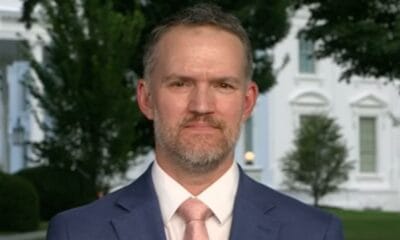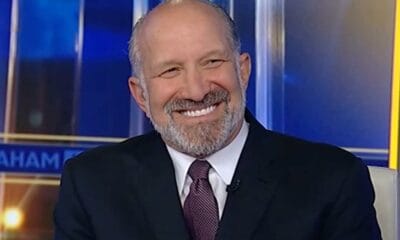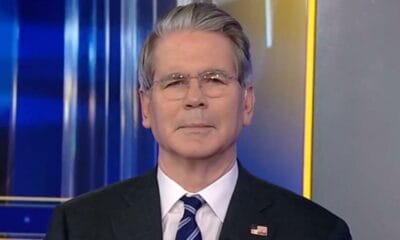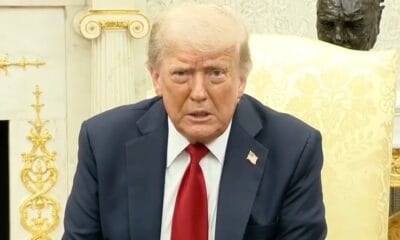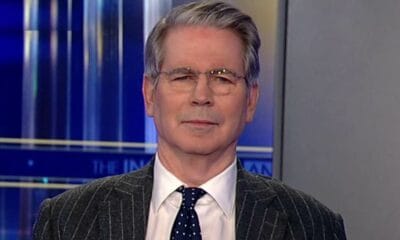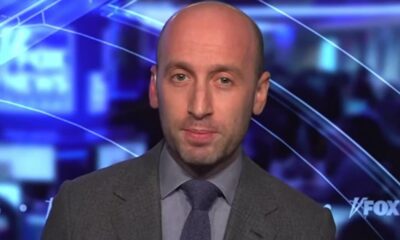china
Bessent: Trump’s Strategy Forces China to the Table on Trade Talks
In an exclusive interview on The Ingraham Angle, Treasury Secretary Scott Bessent delivered a pointed and sober update on the state of U.S.-China trade relations, confirming that long-stalled talks are finally back on track—albeit cautiously.
Bessent, alongside U.S. Trade Representative Jamieson Greer, is heading to Switzerland for high-level weekend talks with China’s lead trade delegation. “We haven’t had negotiations,” Bessent said bluntly. “The world has been coming to the U.S., and China has been the missing piece.” Initially slated to meet with Swiss counterparts, the Treasury Secretary revealed the Chinese team “will be in Switzerland also,” creating an opening for engagement. “We will meet on Saturday and Sunday.”
Despite China’s hardline stance—refusing talks unless the U.S. rolls back a 145% reciprocal tariff—Bessent confirmed no concessions have yet been made. “Everything’s on the table,” he said. “But it’s up to the president at the end of the day.” He noted that if countries resist fair negotiation, President Trump is prepared to “ratchet the number back up” to match previous penalty levels.
Bessent cast the current impasse not as a stalemate, but as a strategic positioning. “What we’re going to do in Switzerland is—we’ve agreed to talk. Then, we’ll agree what we’re going to talk about,” he said. “My sense is that this will be about de-escalation, not about the big trade deal. But we’ve got to de-escalate before we can move forward.”
On the matter of Wall Street’s unease over Trump’s unpredictability, Bessent did not flinch. “In game theory, it’s called strategic uncertainty,” he explained. “Nobody does it better than President Trump.” The markets may be uneasy, he conceded, but “that’s because they have a lack of information. President Trump has asymmetric information—and he’s not going to show his hand early.”
Pressed on whether the current consumer pressures—such as reports of half-empty barges heading to U.S. ports—forced the administration’s hand, Bessent pushed back. “A lot of American businesses have pre-positioned inventory,” he said. “The trade deficit actually jumped because so many people bought in advance.” But he emphasized: “We are going to stick to our guns.”
Bessent distinguished between full economic separation and smart industrial decoupling. “We don’t want to decouple over textiles,” he said. “What we do want to decouple over is exactly what you said—strategic industries.” He cited steel, semiconductors, and medicines as sectors that must return to U.S. shores. “This cannot happen again,” he said, referencing the COVID-era supply chain breakdown as a hard-learned lesson. “We’re going to bring back strategic manufacturing. We’re going to bring back precision manufacturing.”
Addressing critics like investor Paul Tudor Jones, who warned tariffs could trigger further market declines, Bessent responded with a broader view. “We are seeing the world renegotiating trade,” he said, pointing to a newly signed deal between the U.K. and India as evidence that Trump’s pressure tactics are working globally.
When asked about legacy manufacturers like Mattel opting to stay overseas, Bessent remained firm but realistic. “There are plenty of other countries that make toys,” he said. “And look, what I would tell that young girl worried about her dolls at Christmas is this: You will have a better life than your parents. Your family will own a home. You’ll have economic freedom. That’s what we are advancing.”
Bessent closed with a reminder that the status quo—backed by Wall Street and past administrations—created the very imbalances the Trump team is trying to correct. “We’ve created a barbell economy,” he said. “And President Trump is filling in the arc in between with manufacturing jobs. The best way to get real wage increases is in manufacturing, not in the service sector.”
The stakes are high, but as Bessent made clear: “We don’t want a decoupling. What we want is fair trade. And we’re prepared to fight for it.”



